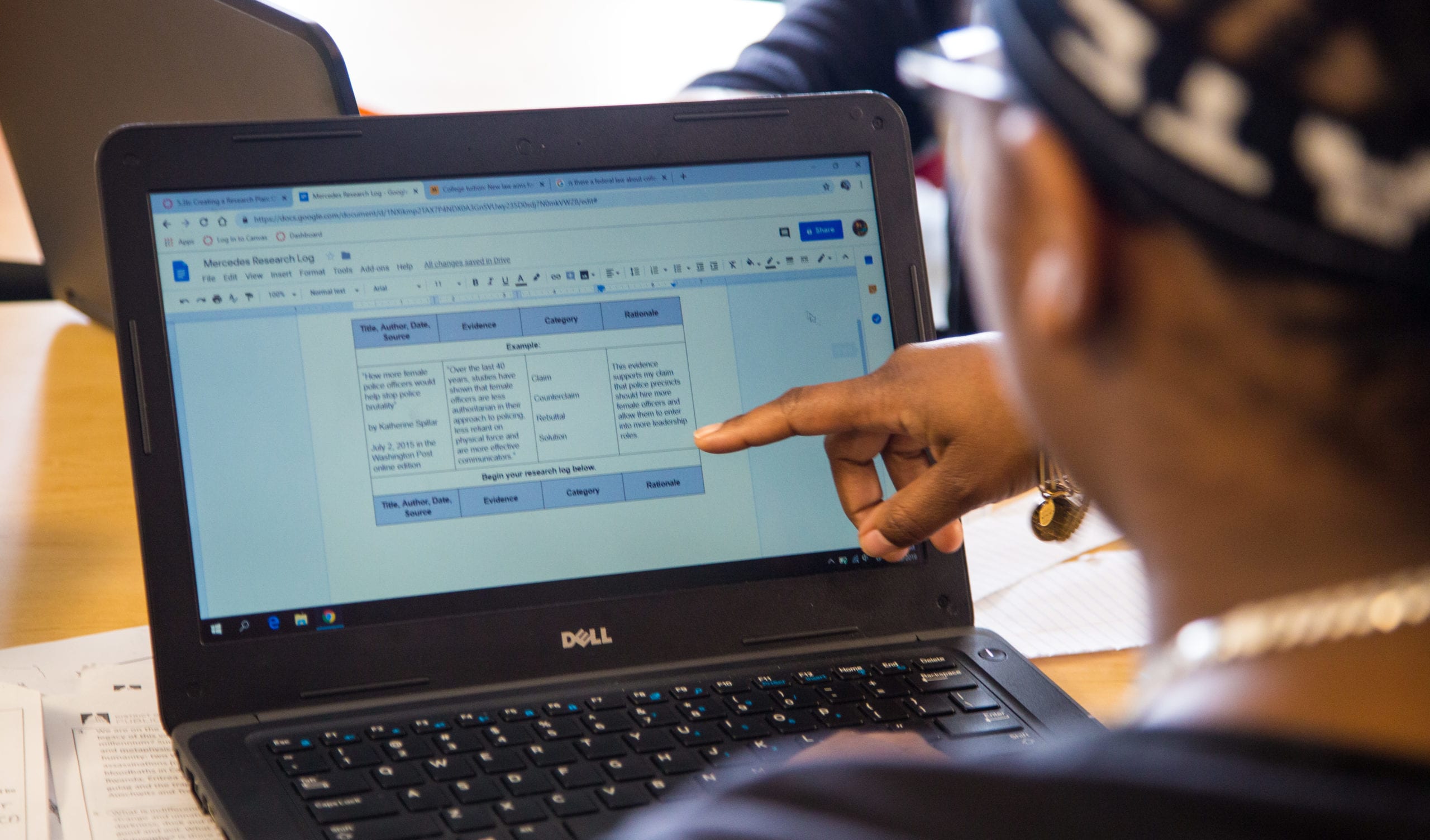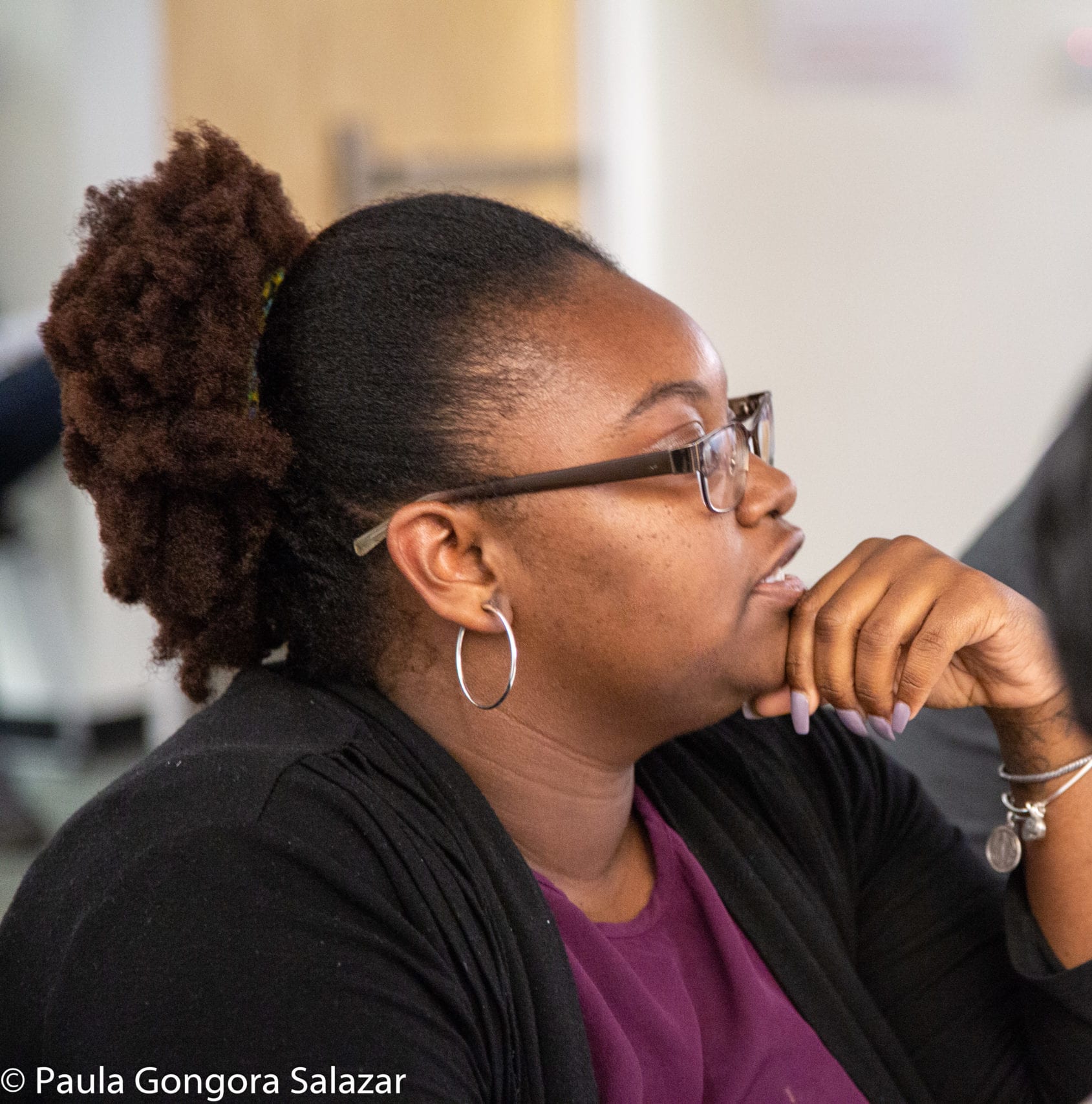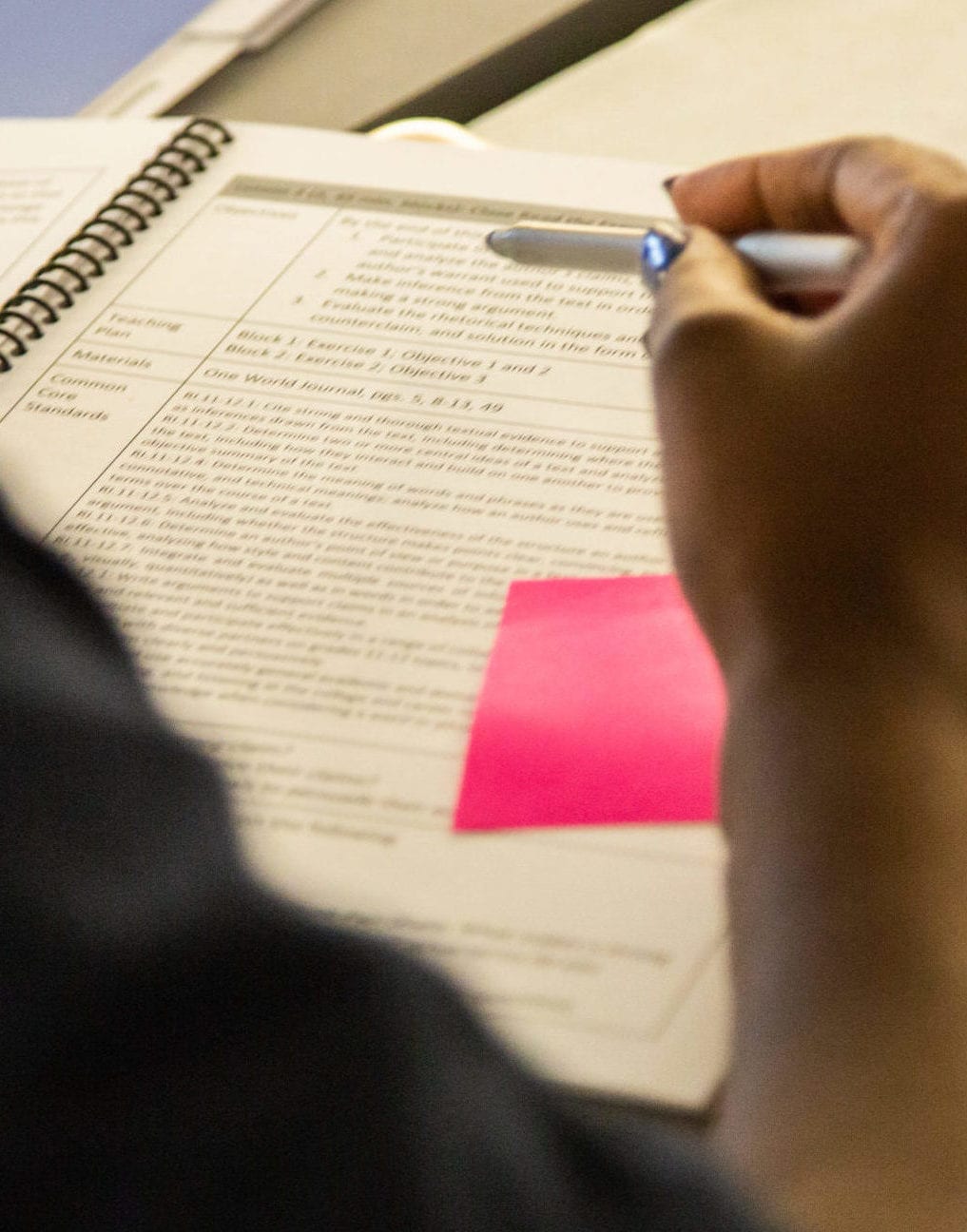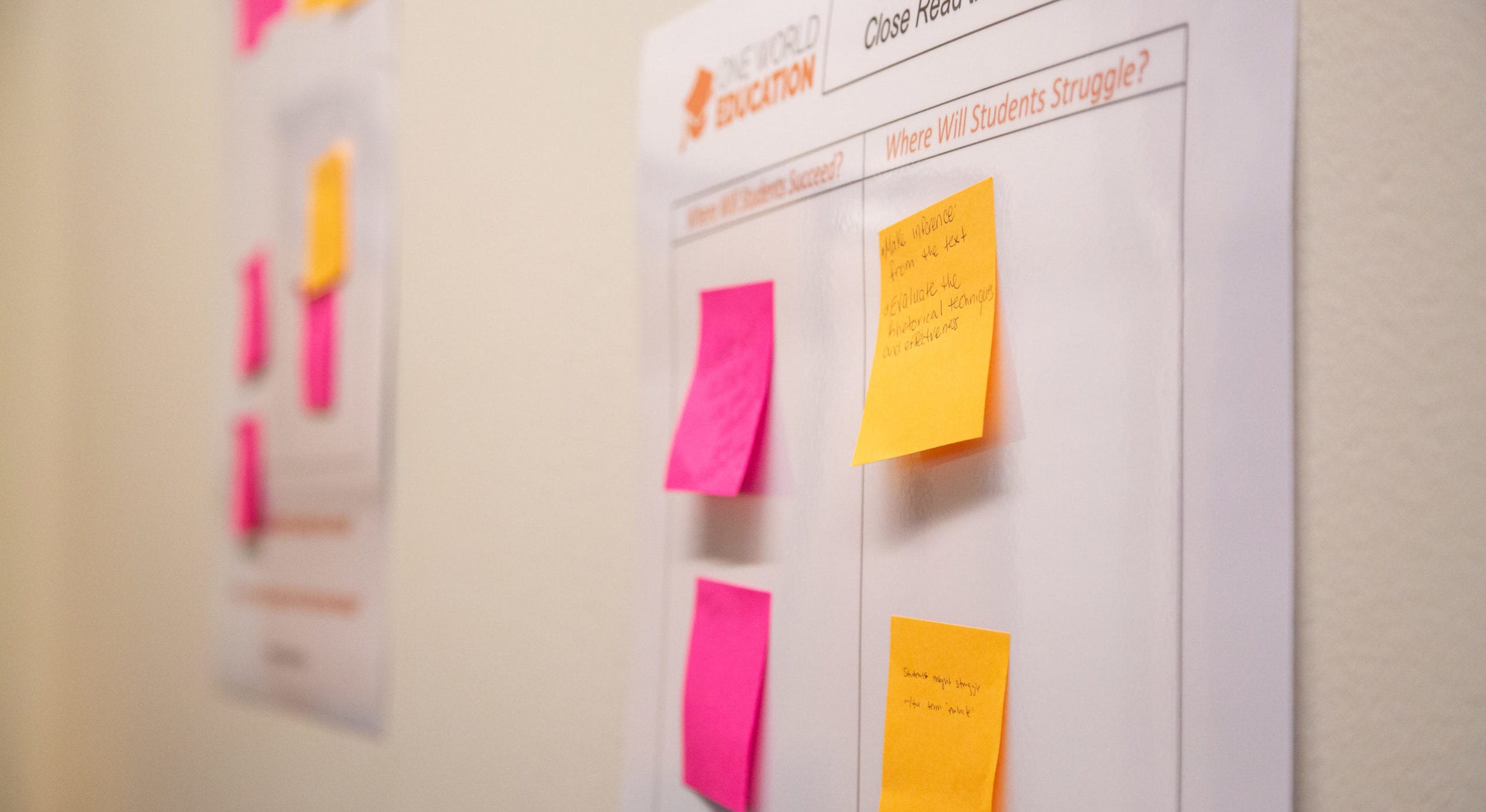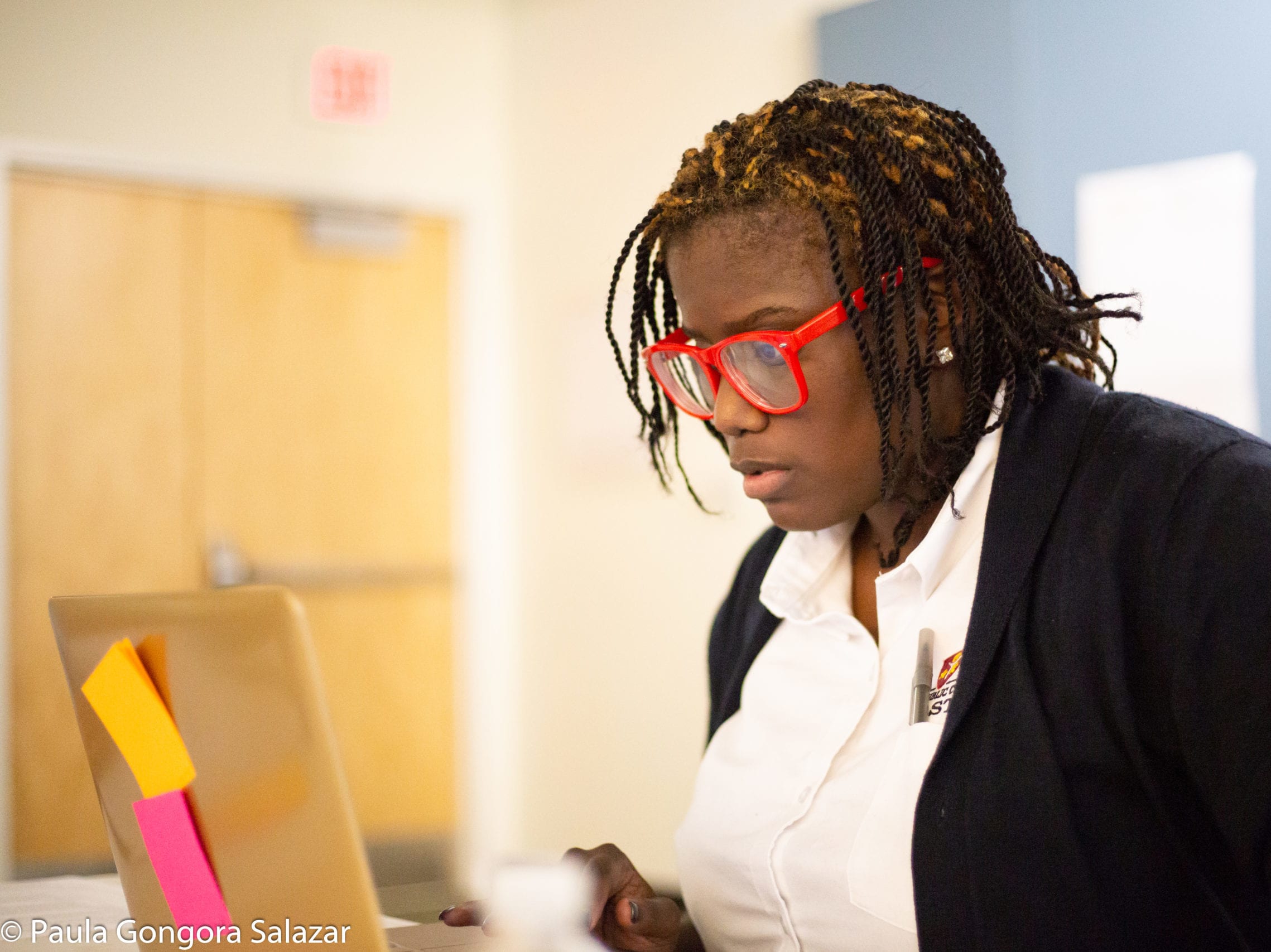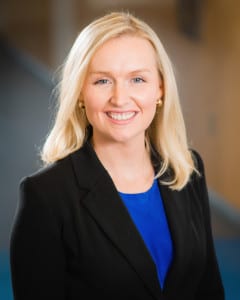Getting Started With One World
Sixty thousand DC residents over the age of 18 have never finished high school, putting themselves and their families at a tremendous disadvantage in today’s economy. They have a wide range of reasons to learn to write effectively.
One World provides professional development to teachers at adult learning centers. They then present the program to students. Student engagement soars when they start the program by picking a social justice issue that matters to them. Adult learners often write about their own problems and the problems of their children. They then learn from studying the essays of their adult peers from past years.
